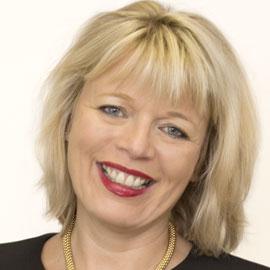Mumbai businessman Vivek Asrani tells of the time when he was looking to buy a new warehouse. The vendor showed him around the building. But, Asrani asked, where are the toilets for the employees? The vendor prevaricated, implying they didn’t matter. Asrani, Managing Director of Kaymo Fasteners, walked away from the deal.
When it comes to paternity leave, Asrani gives all his employees the same time away on full pay that he himself enjoyed when he became a father.
“The way to transform the values is to show the leadership,” Asrani says. He was responding to a question on whether or not values in business could be taught.
He was one of an international panel of speakers on “Leadership for a moral renewal in the economy”, broadcast online from the Initiatives of Change centre in Caux, Switzerland. The Ethical Leadership in Business (ELB) forum, held over two days, 25-26 June, was the first of a series of online Caux Forums during the pandemic lockdown of 2020.
Asrani said that he runs his business, India’s largest supplier of industrial staplers, “with love for our team, our customers and the environment”. Love, he said, is a powerhouse. “Don’t hesitate to convert it into policies and practices in your company.”

The two-hour business forum was moderated by Sarah Schwab (right), founding CEO of The Experience Accelerator, an educational technology start-up company providing corporate training and leadership development.
She said that business leaders faced one of the most challenging periods in history due to the global Coronavirus pandemic, including protecting jobs and retaining customers in the midst of “parachuting” sales. The situation required empathy, compassion and trustbuilding.
Those on the panel included Guillaume Taylor, founder of Quadia, a pioneering investment company which allocates private and institutional wealth into investment strategies to create positive social and environmental impact. Their vision, he said, is to encourage a circular and regenerative economy for the sustainability of the planet.
Kristin Engvig from Norway is the founding CEO of Win and the Win conferences, which aim to inspire women and organizations to be a force for good in society.
Isabella Phoenix has worked for over 23 years as a senior manager, EMEA (Europe, Middle East and Asia), with HP (Hewlett Packard). Her “vision”, she said, is to “support people to fly higher”. She said there was sometimes a need to “stop what you are doing to give people time”. At one point somebody phoned her in the midst of a busy week. She said she had only two minutes for the call. The caller said they had been trying to reach her all week. Phoenix realised that she needed to change and take the time to listen to the person’s concerns.
The panel had been brought together by Annika Hartmann de Meuron, Managing Director of Ethical Leadership in Business at Caux.
The speakers said the Coronavirus pandemic had been a chance to slow down, take time for inner reflection and look for areas of hope.
Responding to the question, “Can values by taught?”, Isabella Phoenix said that people needed to “self-reflect”. She cited the conviction of Frank Buchman, founder of the global Initiatives of Change (IofC) movement, who had encouraged the practice of a quiet time at the beginning of each day to listen to the inner voice of conscience and inspiration.
Sarah Schwab asked, “How do we change the framework for measuring success?” Economic growth was inadequate and she cited the need to feed the world and “nourish” it. Asrani emphasized the need to move from shareholder value to stakeholder value—to “shift from the ‘what’ to the ‘how’”. How things are done in business was crucially important. “There is a huge difference between making money and creating value,” he said.
A German listener, Simone Mueller, asked if it was possible to change the mindset of the “old school” of business leaders. “How can we ensure more collaboration in the business world if the current narrative taught in business schools…. is still competitiveness—coming first, no matter what? How can we have an impact on the ‘old school’ leaders who are currently the decision makers in politics and the economy?”
Clearly there was a need for business schools to shift the narrative from shareholder value to stakeholder value. And there was a need, as one panel member put it, to “surround yourself with people of different backgrounds: racial, gender and religious”.
Concluding, Guillaume Taylor quoted an African prover which says that, to be happy, people needed “something to do; something to look forward to; and someone to love.”
